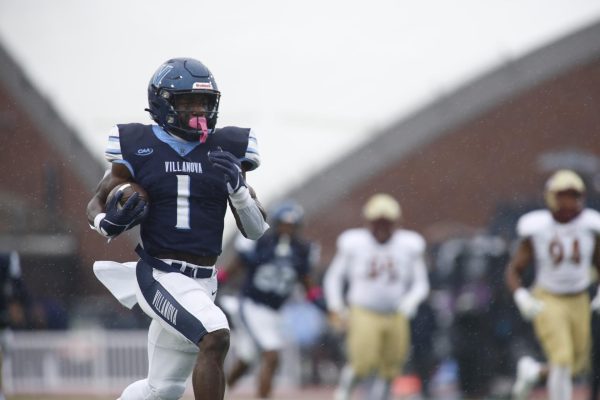Girgenti: Freedom of speech, freedom of assembly
December 5, 2002
The Supreme Court recently heard arguments in a lawsuit brought against anti-abortion protesters. The lawsuit seeks to punish these protesters under the Racketeer Influenced and Corrupt Organizations statute, which became law in 1970. The aim of the law is to prevent organizations from acts involving violence, arson, murder or extortion. RICO was primarily intended as a way to prevent money gained illegally from being laundered through legitimate organizations. Violation of RICO holds penalties of up to 20 years in prison and complete forfeiture of one’s assets.
Despite my basic political disagreement with anti-abortion protesters, I think this lawsuit is utterly ridiculous. How have anti-abortion protesters profited from any violence engaged in against abortion clinics? They haven’t. In fact, the vast majority of anti-abortion protesters oppose violence against the clinics. After all, the basic premise of the anti-abortion movement is the protection of human life, and that is not something that can be achieved through murder.
The government, with President Bush’s support, argues that the protesters are in violation of RICO simply through blocking business at abortion clinics. This interpretation of the law is not actually supported by the legal process that brought the statute into existence, nor is it supported by the language of the law. Perhaps more troubling, however, is the precedent that would be set if RICO is used successfully against these protesters. If it is suddenly possible to send protesters to jail for expressing their First Amendment rights, then all protests in America, for whatever cause, would become illegal. After all, most protests involve walking along the sidewalks or streets of a city, which could be viewed as blocking access to businesses along located there.
To shed some light on the issue, let us consider similar protests committed in the United States. In the 1960s, Martin Luther King Jr. and a number of black college students engaged in sit-down strikes at lunch counters that only served whites. By taking up seats, they were essentially blocking people from doing business in these establishments. Many protest movements use boycotts as a tactic for forcing moral change on companies. However, a boycott is simply another way of preventing certain companies from doing business until they change their ways or close down. Again, under the President’s interpretation, RICO would make these actions illegal. Somehow, though, we are supposed to believe this case is not about freedom of speech. The reality, however, is that this case is an attack on our most cherished liberties and our most cherished document, the Bill of Rights. So we must now hope that the members of the Supreme Court manage to put aside their ideological blinders and unanimously overturn the findings of lower courts. Otherwise, this country will start down a slippery slope from which we may never be able to arise.










